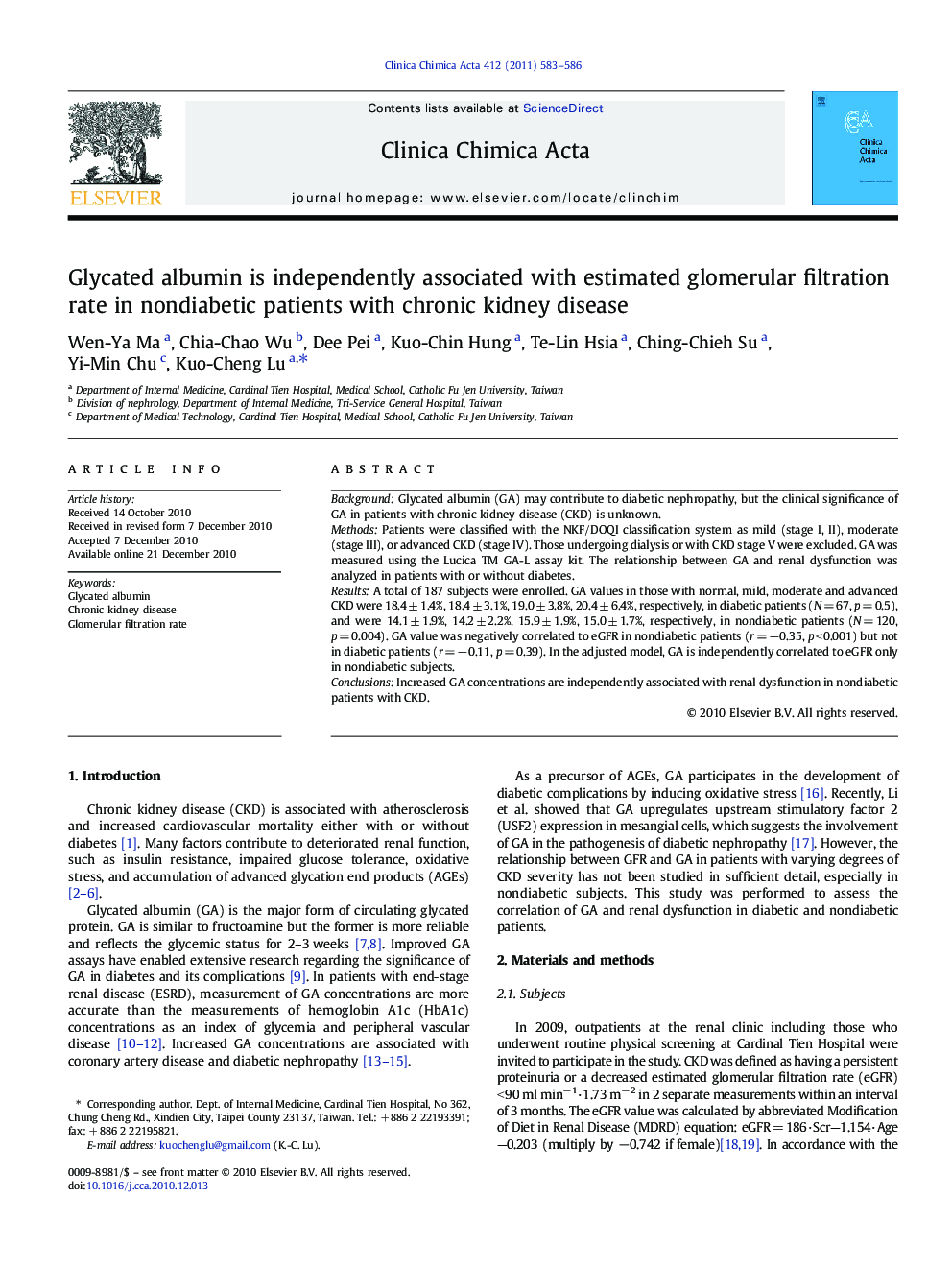| Article ID | Journal | Published Year | Pages | File Type |
|---|---|---|---|---|
| 1966426 | Clinica Chimica Acta | 2011 | 4 Pages |
BackgroundGlycated albumin (GA) may contribute to diabetic nephropathy, but the clinical significance of GA in patients with chronic kidney disease (CKD) is unknown.MethodsPatients were classified with the NKF/DOQI classification system as mild (stage I, II), moderate (stage III), or advanced CKD (stage IV). Those undergoing dialysis or with CKD stage V were excluded. GA was measured using the Lucica TM GA-L assay kit. The relationship between GA and renal dysfunction was analyzed in patients with or without diabetes.ResultsA total of 187 subjects were enrolled. GA values in those with normal, mild, moderate and advanced CKD were 18.4 ± 1.4%, 18.4 ± 3.1%, 19.0 ± 3.8%, 20.4 ± 6.4%, respectively, in diabetic patients (N = 67, p = 0.5), and were 14.1 ± 1.9%, 14.2 ± 2.2%, 15.9 ± 1.9%, 15.0 ± 1.7%, respectively, in nondiabetic patients (N = 120, p = 0.004). GA value was negatively correlated to eGFR in nondiabetic patients (r = −0.35, p < 0.001) but not in diabetic patients (r = −0.11, p = 0.39). In the adjusted model, GA is independently correlated to eGFR only in nondiabetic subjects.ConclusionsIncreased GA concentrations are independently associated with renal dysfunction in nondiabetic patients with CKD.
